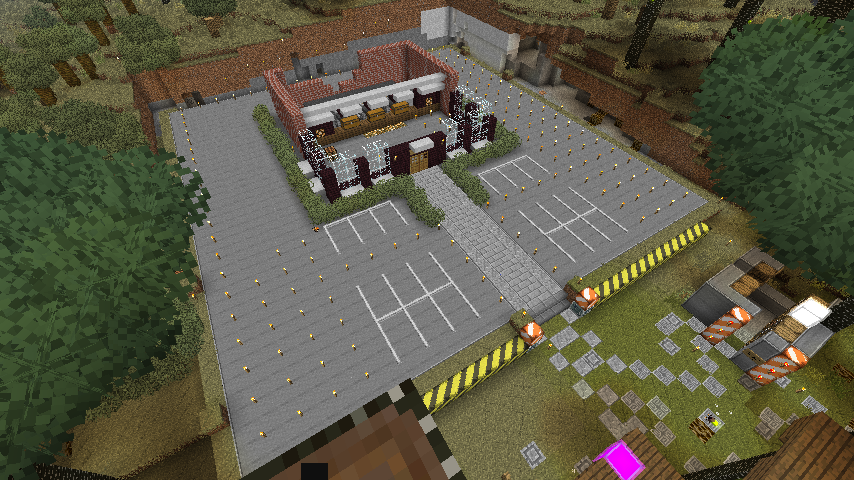Widening the Commons
A month has passed since we started construction in Minecraft, and now, at the end of the line – our project reach it’s end, I find myself going back through my week notes. With the BFC practically completed, and the major mechanisms functions, I am starting to ask myself what I have learned through this social experience.
This online teamwork demands an answer: How did this closed server lesson our enjoyment in favor of obeying rules? The server itself only tells us to watch our language – but, our Boss told us not to damage anyone else’s property. Why do we listen? I believe social investment stopped us from damaging other people’s works, and instead, work together. If we wanted to remain part of Darren’s research group, we had to obey extrinsic rules. Rules that are not part of the actual game, but which we all understand as law: we are all working and studying Minecraft academically and therefore we help each other instead of work against each other. We ask each other for help, we take care not to damage anyone else’s work and through this, we lesson our enjoyment as we must constantly have to make sure we are not about to damage someone else project. We cannot build anywhere we want, we must carefully pick out an area and confirm that no one is utilising it for something else.
In a previous post, I questioned whether this project was a game or labour. As I previously said, everyone on the serve appears to be working on a project. As we are using a game server to explore social conventions, and question our world, deciphering between play and labour became difficult. Indeed, we are “playing” on a server, but, we had a specific task: build the BFC.
“To play a game is to attempt to achieve a specific state of affairs [prelusory goal], using only means permitted by rules [lusory means], where the rules prohibit use of more efficient in favour of less efficient means [constitutive rules], and where the rules are accepted just because they make possible such activity [lusory attitude]. […] playing a game is the voluntary attempt to overcome unnecessary obstacles. (Suits The Grass Hopper 41, chapter 3)
And therefore, neither my fellow researchers or I were playing this game. We set up camps with construction blocks, and did everything to make building happen more quickly and efficiently: we used projectiles to destroy trees, stocked barrels full or items, set up an employee chat board, and excavated land. However, we did all this with one purpose: build the BFC, and completing the project.
But, as we become more comfortable interacting with our environment, we began to explore and actually have fun: we built additional houses, offices, and explored the world.
We still have a few adjustments to make to the building itself and push it a step further. With a Tesseract, or a rail system as Sean has stated in his previous blog post, we could teleport/transfer goods all over the system (instead of simply destroying it in a specialized chest using the hopper system from my previous blog post). Darren Wershler, Saeed Afzal and I had thought to transport the goods to the main areas of the server: the “Noob landing” area where new players begin, and “Flower Hill”, the central city. Through this method, we could address the question I posed about greed, and supply and demand.
With either of these systems, we would allow other players to start playing much more quickly: they would no longer have to worry about obtaining food, as they could get as much as they wanted from BFC. This would allow them to explore and enjoy the world without having to worry about finding a food source. At the same time, some might argue that these players should play “creative mode” instead (a version of the game where you do not have to worry about monsters and death and need only build).
All this non-withstanding, we were still building a franchise that would supply a server that could only comfortably house one player (and at a maximum, two with some lag). What is the purpose of creating a system that is only able to cater to a dozen players, when we have a limited amount of active players? With the issue of lag, we could not possibly think of adding more players as it would damage the commons even further. However, we can print the schemes and publish them for everyone.
In “The Inverse Commons”, Eric S. Raymond’s explains that unlike the real world, online commons increase in value as more people use it.
Similarly, although we are unable to expand our limited and closed commons, We can share our findings and scheme with other Minecraft users – and so, although our BFC produces more chicken than we will ever need, other servers could benefit from it. In this way, we are still a commons because we are choosing to share the material elsewhere, so that anyone else can partake of it.

